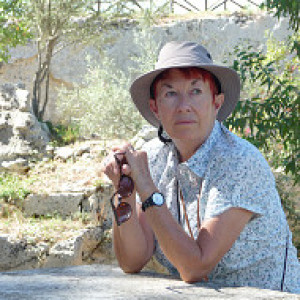Of Gardens
I've pinched that title - which suggests far more than I intend to write about - from the essay by Francis Bacon. We had to study Bacon's Essays at school, perhaps in S4, and though I couldn't be said to have been enraptured at the time they fairly stuck with me over the years. So much so, in fact, that one year when I was teaching - I think in the 1990s - when I was given a truly top-notch S3 class to take through the two years of Standard Grade English, I started in June with a an ancient set of the Essays which I'd unearthed in the English department store cupboard. We didn't read more than four or five before we broke up for the summer holidays, but I gave them an exercise to complete if they wanted to - to write a Bacon-style essay on a subject of their own choosing. I think about 20 of them handed in completed essays when they returned, and it set the tone for a marvellous two years.
So to this mini-essay. What does Bacon have to say about gardens? His openings are often the bits that stick with you. So:
God Almighty first planted a garden. And, indeed, it is the purest of human pleasure. It is the greatest refreshment to the spirits of man, without which, buildings and palaces are but gross handiworks.
Our own garden first. You may recall my paranoid musings about the encroaching privet hedge that I attacked with my feeble clippers? The want of the electric hedge cutters to do a decent job? No more. Mr PB went off to the local hardware store and came back with a shiny new beast. After coffee he attacked the hedge, and went on to strim the long grass that had grown under it. By the time he'd finished, the hedge was straight and flat-topped with nary a twig protruding, and the garden was a full 15" wider. In a small garden, these things matter ...
And a second garden, only this time an accidental one. It's what I'm blipping, in my photo of Dunoon's West Bay. We were out too late for it still to be afternoon (all that gardening), so the front and the beach were more or less deserted. But just look at the greenery! How does that come about? All that grass, all these flowers, growing on the shingle - where do they come from?
I don't know if Bacon would have found this outburst of greenery to his taste; he liked the idea of a wild "heath" in part of a garden - a natural wildness - but the reverse? I'm interested to see what becomes of it in the winter; perhaps the first big tide will sweep it away again. In the meantime, I'm drawn back to thinking I might look for my own battered copy of the Essays, just for the interest of his bizarre attention to detail.
And it keeps me from thinking about the present ...

Comments
Sign in or get an account to comment.


